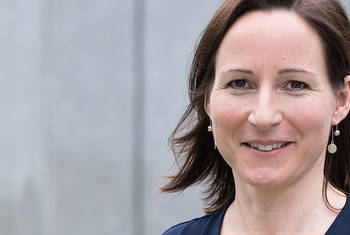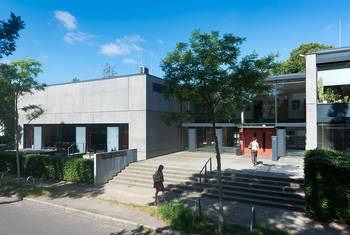Anna Ahlers How Does China Remove Air Pollution From Cities For Prestigious International Events?
Dr. Anna Ahlers leads the Lise Meitner research group “China in the Global System of Science” at the Max Planck Institute for the History of Science. Having completed her PhD in China Studies at the University of Tübingen in 2013, Ahlers has previously worked at the University of Oslo as an associate professor for Modern Chinese Society and Politics and the Mercator Institute for China Studies (Merics) in Berlin. Among other things, her research focuses on how the political system in China at different levels implements policies and interacts with scientific research. Associate Editor-in-Chief of the Journal of Chinese Governance, Ahlers is also an elected member of the Young Academy (Die Junge Akademie) at the Berlin-Brandenburg Academy of Sciences and Humanities and the National Academy of Sciences Leopoldina.
Area of Research
Contemporary China: Society
since 2020
Research Group Leader
Max Planck Institute for the History of Science (more details)
China in the Global System of Science
2014-2019
Associate Professor
University of Oslo
“Modern Chinese Society and Politics”, Department of Culture Studies and Oriental Languages
2013-2014
Deputy Director
Research group “Politics and International Affairs", Mercator Institute for China Studies Berlin
2013
Postdoctoral Research Fellow
University of Bonn (Rheinische Friedrich-Wilhelms-Universität Bonn)
Department of Comparative Research on Democracies, Forum InternationaleWissenschaft (FIW)
2008-2013
Lecturer and Research Fellow
Universität Tübingen
Institute of Asian and Oriental Studies (AOI)
2007-2008
Assistant
RSBK GmbH strategy consultancy
2013
Ph.D.
Universität Tübingen
Institute of Asian and Oriental Studies (AOI)
2007-2012
Master
Universität Tübingen
Sinology (1st Major) and Political Science (2nd Major)
- Asiatische Studien/ Etudes Asiatiques
- EPA: Economy and Space
- China Information
- Environmental Science and Policy
- Cities
- Environmental History
- Governance
- European Association of Taiwan Studies (EATS)
- Association for Asian Studies (AAS)
- European Association forChineseStudies (EACS)
- German Association for Social Science Research on China (ASC)
- German Associationfor Asian Studies (DGA)
- Hong Kong Studies Association
Fellowships
- Wissenschaftskolleg zu Berlin (Instituteof AdvancedStudy) 2020-2021
- Wigeland fellow, at EALC (University of Chicago) 2018-2019
- Visiting Research Fellow, ZhejiangUniversity (Hangzhou), PR China, since 2015
Prizes
- "Outstanding Doctoral Thesis Award”, Faculty of Humanities, University of Tübingen
Institute
Max Planck Institute for the History of Science
Founded in 1994, the Max Planck Institute for the History of Science (MPIWG) in Berlin is one of more than 80 research institutes administered by the Max Planck Society. The Institute is dedicated to the study of the history of science, aiming to understand scientific thinking and practice as historical phenomena from a variety of methodological and interdisciplinary perspectives. Our research draws on the reflective potential of the history of science to address current challenges in scientific scholarship, exploring the changing meaning of fundamental scientific concepts as well as how cultural developments shape scientific practices. The Institute’s projects span all eras of human history and a multitude of cultures globally, ranging from the origins of continuity systems in Mesopotamia to present-day science in China, Renaissance natural history, and the past of quantum mechanics. The Institute also draws on the reflective potential of the history of science to address current challenges in scientific scholarship.
Map
Smog is a major problem in Chinese urban centres. In this video, ANNA AHLERS explores how the Chinese authorities go about removing air pollution from cities in advance of prestigious international events. Focusing on actions taken in relation to the 2016 G20 summit in Hangzhou, Ahlers and her colleagues carry out interviews with scientists and local government officials, triangulating their responses with a range of other data sources. Identifying a high level of collaboration between scientists and local authorities, Ahlers notes that many of the environmental measures introduced for the G20 were designed to have lasting impact. Beyond its focus on environmental policy, the research offers important insights into the workings of Chinese local government and the role that scientific information plays in policy formulation in China.
LT Video Publication DOI: https://doi.org/10.21036/LTPUB10843
Blue Sky Fabrication in China: Science-Policy Integration in Air Pollution Regulation Campaigns for Mega-Events
- Yongdong Shen and Anna L. Ahlers
- Environmental Science & Policy
- Published in 2019











